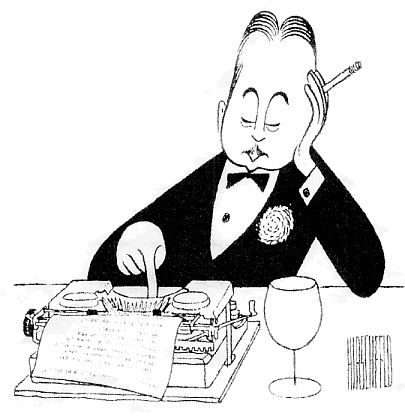Now I would be the last one to belittle the importance of knitting or the invention of a knitting machine. I know some very nice people who knit a great deal. But really, when it comes to anniversaries I don’t see where Isaac Wixon Lamb gets off to crash in ahead of me or a great many other people that I could name. And it doesn’t help any, either, to find that James Fenimore Cooper and William Howard Taft are both mentioned as having been born on that day or that the chief basic patent for gasoline automobiles in America was issued in 1895 to George B. Selden. It certainly was a big day for patents. But one realizes more than ever after reading this section that you have to have a big name to get into an anniversary book. The average citizen has no show at all.
In spite of these rather obvious omissions, Mr. Dillon’s Book is both valuable and readable. Especially in those events which occurred early in the country’s history is there material for comparison with the happenings of the present day, events which will some day be incorporated in a similar book compiled by some energetic successor of Mr. Dillon.
For instance, under Oct. 27, 1659, we find that William Robinson and Marmaduke Stevenson were banished from New Hampshire on the charge of being Quakers and were later executed for returning to the colony. Imagine!
And on Dec. 8, 1837, Wendell Phillips delivered his first abolition speech at Boston in Faneuil Hall, as a result of which he got himself known around Boston as an undesirable citizen, a dangerous radical and a revolutionary trouble-maker. It hardly seems possible now, does it?
And on July 4, 1776—but there, why rub it in?
XLVIII—A WEEK-END WITH WELLS
In the February Bookman there is an informal article by John Elliot called “At Home with H.G. Wells” in which we are let in on the ground floor in the Wells household and shown “H.G.” (as his friends and his wife call him) at play. It is an interesting glimpse at the small doings of a great man, but there is one feature of those doings which has an ominous sound.
“The Wells that everyone loves who sees him at Easton is the human Wells, the family Wells, the jovial Wells, Wells the host of some Sunday afternoon party. For a distance of ten or twenty miles round folks come on Sunday to play hockey and have tea. Old and young—people from down London who never played hockey before in their lives; country farmers and their daughters, and everybody else who lives in the district—troop over and bring whoever happens to be the week-end guest. Wells is delightful to them all. He doesn’t give a rap if they are solid Tories, Bolsheviks, Liberals, or men and women of no political leanings, Can you play hockey? is all that matters. If you say No you are rushed toward a pile of sticks and given one and told to go in the forward line; if you say Yes you are probably made a vice captain on the spot.”

